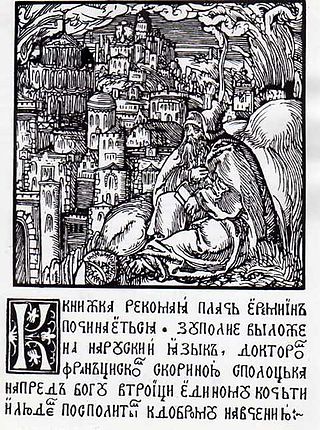
The Book of Lamentations is a collection of poetic laments for the destruction of Jerusalem in 586 BCE. In the Hebrew Bible, it appears in the Ketuvim ("Writings") as one of the Five Megillot alongside the Song of Songs, Book of Ruth, Ecclesiastes, and the Book of Esther. In the Christian Old Testament, it follows the Book of Jeremiah as the prophet Jeremiah is traditionally understood to have been its author.
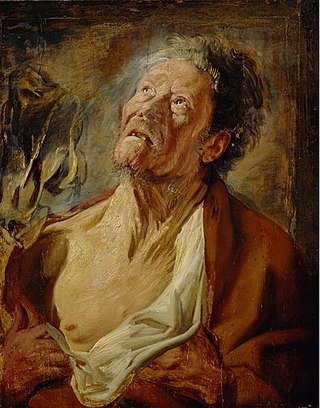
The Testament of Job is a book written in the 1st century BC or the 1st century AD. The earliest surviving manuscript is in Coptic, of the 5th century; other early surviving manuscripts are in Greek and Old Slavonic.
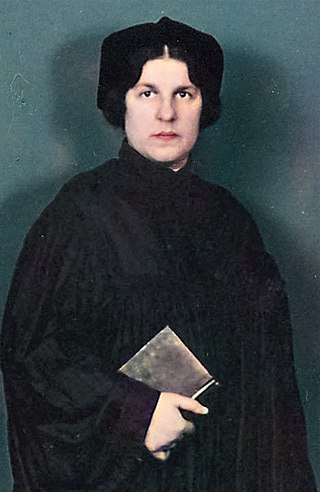
Regina Jonas was a Berlin-born Reform rabbi. In 1935, she became the first woman to be ordained as a rabbi. Jonas was murdered in the Holocaust.

Elisabeth Blochmann was a scholar of education, as well as of philosophy, and a pioneer in and researcher of women's education in Germany.

Julie Wolfthorn was a German painter. Born as Julie Wolf(f) to a middle-class Jewish family, she later styled herself as Julie Wolfthorn after Thorn (Toruń), her city of birth.

Elisabeth Schüssler Fiorenza is a Romanian-born German, Roman Catholic feminist theologian, who is currently the Krister Stendahl Research Professor of Divinity at Harvard Divinity School.
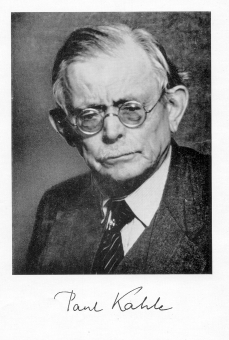
Paul Ernst Kahle was a German orientalist and scholar.
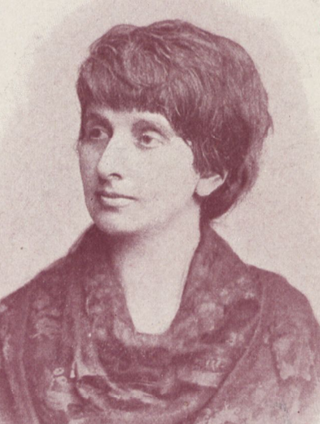
Marianne Adelaide Hedwig Dohm was a German feminist and writer.
Adolf Jülicher was a German scholar and biblical exegete. Specifically, he was the Professor of Church History and New Testament Exegesis, at the University of Marburg. He was born in Falkenberg near Berlin and died in Marburg.
Karl Ferdinand Reinhard Budde was a German theologian, born in Bensberg, and a well-known authority on the Old Testament.

Hedwig Dransfeld was a German Catholic feminist, writer and member of parliament.
Eta Linnemann was a German Protestant theologian. In her last years, she broke completely with the theology of her teacher Rudolf Bultmann.

Charlotte Elisabeth Wust was a German housewife of a German banking accountant and soldier during World War II. She was known for her romantic relationship with Felice Schragenheim, a Jewish member of the German Resistance. The story of their relationship is portrayed in the 1999 film Aimée & Jaguar, and in a book of the same name by Erica Fischer.

Jephthah's daughter, sometimes later referred to as Seila or as Iphis, is a figure in the Hebrew Bible, whose story is recounted in Judges 11. The judge Jephthah had just won a battle over the Ammonites, and vowed he would give the first thing that came out of his house as a burnt offering to God. However, his only child, an unnamed daughter, came out to meet him dancing and playing a tambourine. She encourages Jephthah to fulfill his vow but asks for two months to weep for her virginity. After this period of time, Jephthah fulfilled his vow and offered his daughter.
Ernst Haenchen was a German Protestant theologian, professor, and Biblical scholar.
Elisabeth Jastrow was a German-born American classical archaeologist. Her research focus included arulae.

Hedwig Porschütz was active in the German resistance to Nazism. She was recognised posthumously as Righteous Among the Nations for aiding and rescuing Jews during the Holocaust.

Katharina Kloss was a German teacher and politician. In 1919 she was one of the 36 women elected to the Weimar National Assembly, the first female parliamentarians in Germany. She remained a member of parliament until the following year.
Sister Mary Coloe is an Australian religious sister and New Testament biblical scholar who specializes in the Gospel of John. She is a member of the Sisters of the Presentation of the Virgin Mary, a Roman Catholic religious order dedicated to teaching and service to the poor. She is a professor at Yarra Theological Union, in Box Hill, Victoria, Australia.
Heidrun E. Mader is a German Protestant theologian and historian of early Christianity and its literature, and a professor at the University of Cologne, Germany, holding a chair of Biblical Literature and its Reception History.














